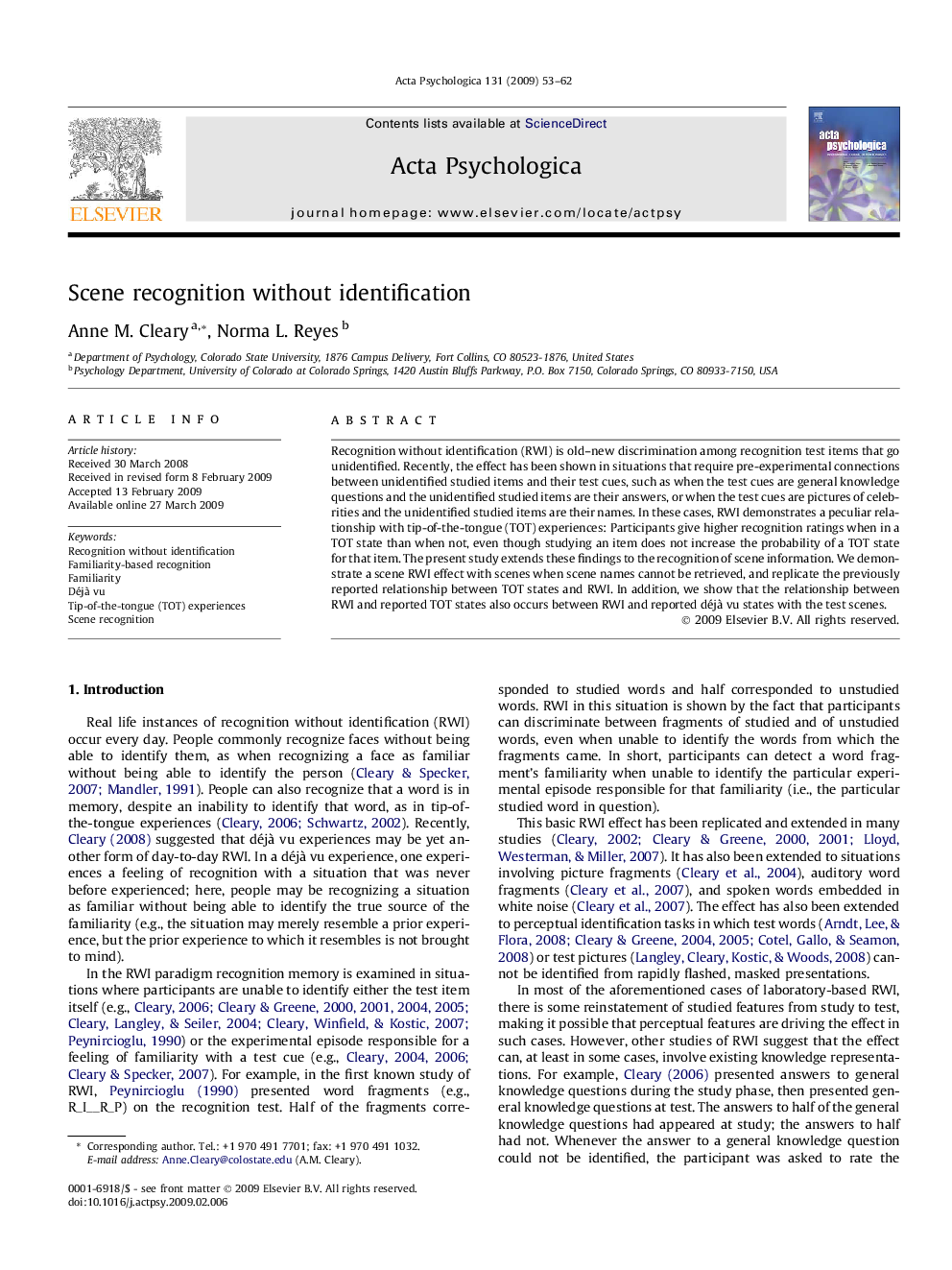| Article ID | Journal | Published Year | Pages | File Type |
|---|---|---|---|---|
| 920336 | Acta Psychologica | 2009 | 10 Pages |
Recognition without identification (RWI) is old–new discrimination among recognition test items that go unidentified. Recently, the effect has been shown in situations that require pre-experimental connections between unidentified studied items and their test cues, such as when the test cues are general knowledge questions and the unidentified studied items are their answers, or when the test cues are pictures of celebrities and the unidentified studied items are their names. In these cases, RWI demonstrates a peculiar relationship with tip-of-the-tongue (TOT) experiences: Participants give higher recognition ratings when in a TOT state than when not, even though studying an item does not increase the probability of a TOT state for that item. The present study extends these findings to the recognition of scene information. We demonstrate a scene RWI effect with scenes when scene names cannot be retrieved, and replicate the previously reported relationship between TOT states and RWI. In addition, we show that the relationship between RWI and reported TOT states also occurs between RWI and reported déjà vu states with the test scenes.
